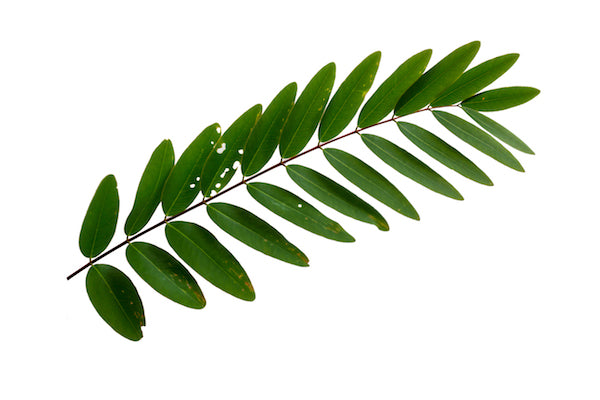Senna leaves

General Information
Chinese name: 番泻叶 (Fan Xie Ye)
Scientific name: Senna alexandrina, Cassia angustifolia, Cassia acutifolia, Cassia lanceolata
Other names used: Senna, Cassia Senna
Senna leaf benefits at a glance
- Promotes digestion
- Accelerates intestinal transit
- Combats bloating
- Has a natural laxative effect
- Promotes weight loss
Botany and Origins
Plant description
The Senna alexandrina is a small plant that grows as a bush about 60 cm tall.
This leguminous plant gives rise to small yellow flowers and elongated pods that contain about 5 to 6 seeds.The Senna belongs to the Caesalpiniaceae or Fabaceae family.
Geographic Origin
This species is very widespread in hot and tropical regions.
It can be found in China, India, and West and East Africa.
History
It has been used as a medicinal plant in traditional Chinese medicine and Ayurveda for millennia. It has also been used in the West since the 18th century.
In traditional Chinese medicine (TCM), senna leaves help establish a harmonious balance between Yin and Yang.
Medicinal Properties of Senna Leaves
Category in traditional Chinese medicine
This medicinal plant is used to relax the intestines and bring abdominal fullness. It is part of the "downward purgatives" herbs. It helps to eliminate excess heat in the intestines and stomach.
Part of the plant used in our infusions
Dried senna leaves are used in our infusions.
In Ayurvedic and Chinese medicine, it is also possible to use senna seeds or Cassia Tora.
Benefits of Senna Leaves
Promotes digestion and combats bloating
Bloating, flatulence... Senna leaves provide a response to these problems by acting on the acceleration and improvement of transit.
Has a natural laxative effect
Senna leaves contain sennosides. Their consumption increases the physiological contractions of the digestive tract that allow the progression of food before and after their digestion.
Find Senna Leaves in our teas

- Weight Loss
- Transit & Digestion
- Anti-Bloating

- Cleanse
- Energy
- Burns fat

- Cleansing
- Detoxifying
- Reduce bloat

- Cleansing
- Fitness goals
- Feeling energised

- Cleansing
- Fitness goals
- Feeling energised

- Cleansing
- Fitness goals
- Feeling energised

- Cleansing
- Fitness goals
- Feeling energised

- Weight Loss
- Transit & Digestion
- Anti-Bloating








